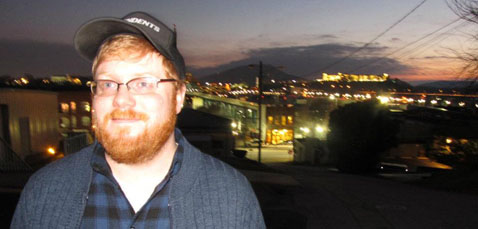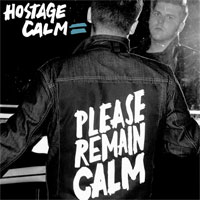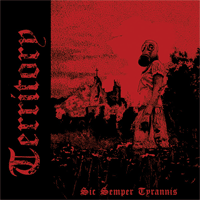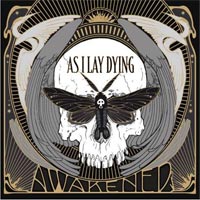
John-Michael Bond (The1stFive) Discussing Stand-Up Comedy
Starting a band doesn’t seem very hard. If you’ve got four members and one of them isn’t holding their own, you can generally still get by, unless it’s the drummer. You can’t hide a bad drummer. In stand-up comedy, there’s no protection, and there’s less distractions. John-Michael Bond, editor of music zine The1stFive began doing stand-up a little while ago and I’ve followed along, often in awe at the time commitment put into it and the concept of DIY comedy as a parallel universe to DIY punk. This interview was conducted by email in the Spring of 2012.
Pastepunk: I’ve long thought of performing stand-up comedy as one of the hardest tasks possible, particularly as I view audiences as mostly ready to watch someone bomb. What was the moment that convinced you to give this a try? Did your balls just explode out of your pants one day, and you took it as some kind of a sign?
John-Michael: About two and a half years ago I went to a local DIY comedy show some of my friends put together in our hometown of Chattanooga, TN. After someone bombed I drunkenly told the booker, a comic named Joel Ruiz, that I wanted to do the next show. A month later he sent me an email reminding me the show was the next night and, having forgotten I said I wanted to do it, I scrambled to write a set. My first time up I was insanely nervous, but did pretty well. Granted it was an insanely friendly crowd made up of my friends, but it went really well. Every time I went up I would write an entirely different set, which lead to a lot of half baked ideas but also helped me get into a habit of writing regularly. Balls were never really a consideration, I’ve never been good at shutting up and a few beers can give you a lot of liquid courage. Still I don’t suggest getting drunk before doing comedy when you’re starting out, it backfires way more than it succeeds.
As for bombing, in my experiences most crowds want to like you. Very few people actively go to a show wanting to have a bad time. There are countless factors that can lead to bad shows, from your jokes not being funny to technical issues or a joke someone before you said. Obviously it’s different at an open mic held at a bar where people might not have known they were walking into a comedy show, but those tend to be the exceptions. The only people I have seen at shows who simply didn’t care and came to cause trouble are Bachelorette parties. I have no theories as to why.
Pastepunk: As a fellow zine guy, you’ve been involved a music community for years. What kind of comic community exists for people just getting into the field? Can you draw some similarities and differences between the two?
JM: Just like in punk your location is a big factor on if you’ll have access to a local scene. My travel has mostly been limited to the south but Knoxville, Atlanta, Chattanooga, Nashville, Wilmington, Asheville, Athens, and Chicago all have great scenes where there are open mics and DIY shows that encourage people starting out to get up. But, in the case of my home town Chattanooga for example, starting a show really just depends on having a venue you can count on and people who will work hard to do it. We have a club in town that didn’t have regular open mics so two great local comics, Zach Ames and Jon Durnell, started doing local shows at a bar. When they moved to LA another young comic in town, Joel Ruiz, started his own show at a punk club in town called JJ’s Bohemia so he could keep getting stage time. As we started to draw we got comics from Atlanta to come through and do sets and traded shows in other cities with them.
I know I was insanely lucky how dedicated everyone was to making it work because we went from a pretty awful bar comedy show to hosting some huge comics. Kyle Kinane, Joe DeRosa, Louie Katz, Nate Bargatze, and a ton more have done the JJ’s show. Most of the bigger names we’ve gotten happened because they were near by and we asked. It’s exactly like running a punk show, except you don’t have kids walking into a bar with a twelve pack asking to get in free because they don’t “have any money”.
If you don’t live in a town with a scene the comedy community as a whole has never been more open that it is now. If you’re looking for advice it’s out there across a million blogs, podcasts, and YouTube clips. Part of me is really envious of the kid in high school who wants to do stand up in 2012, because they’ve got this insane wealth of information available to them.
On the downside is both scenes share having too much shit talking and drama. I think that’s an aspect of any form of art to a degree, you put creative people in a room some of them are going to fight.
There are a couple minor differences that are mostly just semantics, but there is one major difference. Comedy doesn’t really have genres the way music does so you’ve got to work within a much more diverse community. Even within the “Alt” or DIY rooms you’ll see and work with people who are vastly different than you are. At least when you’re in a band you know “I play metal so I will try and do shows with these bands that sound like me.” That can work in your favor or against you, depending on how comfortable you are adapting to your audience. Some of my favorite shows have been in rowdy redneck bars or opening for 100% clean comics at a club. Few metal or punk bands have the chance to open for someone completely different from them, especially when they’re just starting out.
Pastepunk: I’ve been a George Carlin fan since my early teens, and I give him a lot of credit for my subsequent adult interest in semantics and how we use particular words every day. Was there a particular comic that you were exposed to at an early age that made a similar impression? Who do you think operates most in that sphere today?
JM: Carlin was forbidden fruit in my house as a kid. My folks compromised on my not being able to buy his records by letting me read his books, which were way worse in a lot of ways. Since I was a little kid I’ve adored standup. In a way my Carlin growing up was Dennis Wolfberg. Without him I don’t think I’d have fallen in love with comedy the way I did. It probably bugged the hell out of my folks, but he taught me you could get away with saying something dirty or wrong as long as you never directly said it.
As for operating in the same sphere today, I think Kyle Kinane, Glenn Wool, Pete Holmes, and Jackie Kashian all do a wonderful job of talking about anything and making it feel comfortable. They’ve all occasionally dragged dark parts of the river, but there’s a certain sweetness to everything they do that makes it alright. In particular I think Kinane’s story about having to crap in the bathroom of a Cholo bar really addresses everything that inspires me about comics like him and Wolfberg. It’s a story that very easily could have been cheap, boring, and racist in lesser hands and instead it becomes something heartwarming. I like those kinds of stories, where someone tells you something you shouldn’t want to hear about and makes you connect to it.
Pastepunk: Can you walk through our readers the general process of getting a gig, and what goes on before and after a performance? Have you developed any personal rituals yet or superstitions?
JM: Getting a gig involves a lot of networking and stage time. Starting out in a city that didn’t have a lot of stage time available caused me to travel out of town to open mics in other cities in order to work on new material. You meet people who book other shows and hope they ask you to do something. You trade shows in your home town. In bigger cities you’ve often got to network and email just to get spots on open mics, which are sometimes booked in advance. To get gigs in clubs I’ve found going to their open mic and doing well is the best way to get guest spots and MC work. Every city and show has its own rules and quirks, but if you’re funny people will help you get gigs.
What I do to prep before a show really depends on what the show is. For bigger gigs, like The Fest, I know exactly what I’m going to do, although the order sometimes changes depending on how the show is going. Usually I just tell my set to my wife two or three times before the show, trying to do it a little differently each time. I’m blessed to be married to woman who isn’t afraid to tell me when a joke doesn’t work and she’s always a great sounding board. For something like open mics I try to make sure I’ve worked through enough material that day that I can go up without knowing which bits I’m going to do and just roll with it. It can lead to bombing more often but I’ve found it’s really helped me develop my material and become more comfortable exploring on stage.
I don’t really have any rituals, but I record every set I can. Nothing has helped me get better more than going back and listening to old sets. You pick up quirks in your delivery or maybe adlibs you might have forgotten. When you’re in the moment you don’t always have the best understanding of what the crowd thought, but listening back the next day really teaches you a lot. It can also be incredibly depressing when you’ve got a indexed file of bad sets.
Pastepunk: You were invited to perform at The Fest this past year (2011), which I believe was the first time they had a comedy oriented show. What was that like? With The Fest growing each year, I keep thinking that eventually they’ll be this gigantic band van pile up on I-75 before the weekend starts, and Punknews will be there reporting from the scene of the carnage…
JM: I hope not, everyone is insanely nice there. The Fest was an amazing experience. I think there was comedy the year before but it wasn’t as big of a show. That was easily one of the best crowds I’ve ever gotten to perform for thanks to scheduling by the organizers. They put the comedy show on the last day, when there was an audience who was exhausted from partying and just wanted to laugh. Not to mention growing up in punk gave us some common connections. One of the simultaneously wonderful and awful things about comedy is how rarely you know what your audience is going to be like. This was one of those rare shows where the crowd and I had really similar backgrounds, so I never second guessed myself worrying if they’d get the references. Getting a big laugh from an ad-lib about Noam Chomsky was a nerdy highlight.
Plus the headliner was Kyle Kinane and seeing someone you look up to laughing at your jokes is an incredible feeling. Tony and the Fest were incredibly generous to have me last year, and it wouldn’t have happened had Eric Solomon from O’ Pioneers/Tiny Empires not given them my information and recommendation. As for the rest of The Fest, it blows my mind how well run it is. Even with hundreds of bands the shows basically start and finish on time, there are surprise sets throughout the weekend, and everyone has a good time. Also as a fan who got into them with Ruiner getting to see A Wilhelm Scream play Mute Print from start to finish was incredible.
Pastepunk: With Twitter and Facebook, do you think that people in comedy are forced to be always ‘on’? It’s obviously a great way to stay connected with fans and friends, but do you fear that material burnout comes quicker with social media?
JM: Thankfully most of the comics I follow and talk to don’t feel that need to be “on” all the time. I think people are starting to feel social media fatigue and appreciate when comics and bands don’t flood their feed with bullshit. It’s better to Tweet twice a day when you have something funny than it is to Tweet twenty times a day with a bunch of half baked jokes.
As for burnout, there will always be exceptions, but for the most part I don’t think it’s a problem. Twitter is an incredible way to brainstorm and try out jokes, and since you’re limited to 140 characters its good practice for writing short jokes. Burnout probably happens for some people, but if your Twittering has gotten so bad it’s hurting your writing you need to step away from your phone or laptop for a moment. Of course it’s also a job to a certain degree. Your job as a comic is to get better and you get better by writing new jokes and working out old ones. There are days when I don’t want to go into my real job and do what I’ve got to do, but I still manage to go in and do that work. I look at comedy the same way. This is what I want my job to be, and accordingly I work at it. Even when I’m tired and not feeling funny. In a way Twitter works like a nagging angel sitting on my shoulder muttering “why aren’t you working on jokes” in my ear.
Pastepunk: What kind of goals do you have set for 2012? Please answer this question in the most cliche manner possible.
JM: I’m starting to work out a tour in the fall going up to Omaha, Nebraska. At Fest last year I met Ian Douglas Terry, a comic from Omaha who is part of a really funny collective up there called OK Party Comedy. They were kind enough to invite me up to do a show in August, so I’m going to try and book a run of shows on the way there. Maybe that’ll end up inspiring a book, “Our Dimly Lit Jokes Could Be Your Life” or something. My wife and I also just moved to Atlanta, GA which has a wonderful comedy scene, so I’m going to be getting on stage as often as I can here. Hopefully this year will also bring new readers to my zine www.The1stFive.com. We’re moving in a more commentary/editorial direction so it’ll be interesting to see how our readers respond. Also if any of your readers want to follow me on Twitter, I’ll do everything I can to fill them with mirth. One of my Tweets was just Retweeted by Third Eye Blind, so an underrated rock band I listened to in high school thinks I’m alright.



